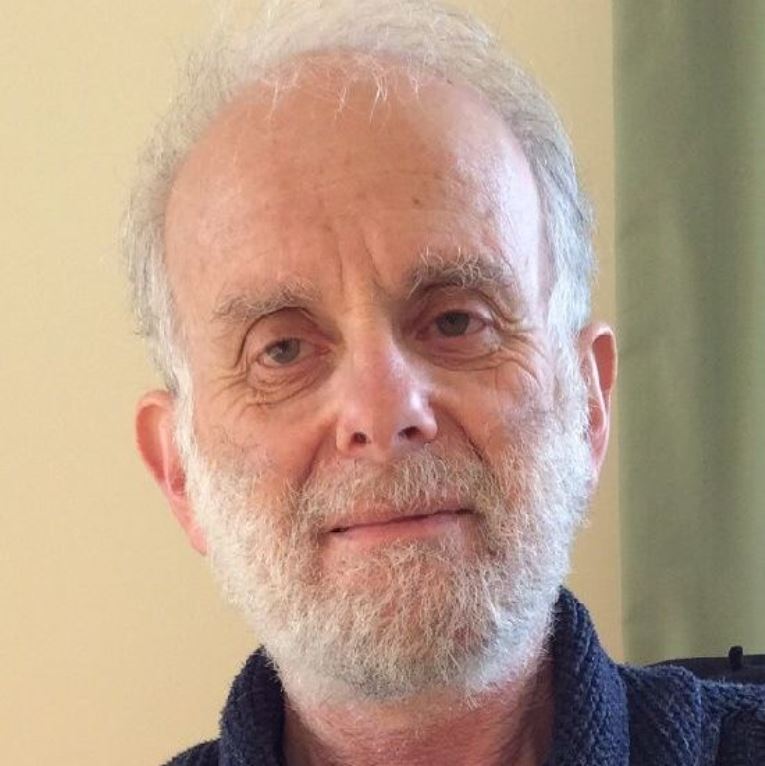 Edit article
Edit articleSeries
Journeys
The Bible Is a Book of Questions, Not Answers
Categories:

 I come from a very conventional, moderately Orthodox home, in well-to-do postwar London. There were intellectual currents around, but I wasn't aware of them. Not until I went to Cambridge to study English, and had the luck to be the contemporary of many gifted people, like Avivah Zornberg and Jonathan Sacks, did I begin to treasure my tradition, and to read the Song of Songs.
I come from a very conventional, moderately Orthodox home, in well-to-do postwar London. There were intellectual currents around, but I wasn't aware of them. Not until I went to Cambridge to study English, and had the luck to be the contemporary of many gifted people, like Avivah Zornberg and Jonathan Sacks, did I begin to treasure my tradition, and to read the Song of Songs.
I used to read the Song of Songs every Friday night.[1] I was interested in the Surrealist poets, especially André Breton, Garcia Lorca, and Ottavio Paz, and I felt that the Song of Songs was a surrealist biblical poem. I couldn't understand why one image followed another, where this music was coming from, and I thought that the most important thing in the world would be to write something good on the Song of Songs.
I remember one year in the early 80s at an SBL meeting, Adele Berlin asking me about the ephemerality of all our work, and I disagreed; I was writing for eternity. It was, as it were, my Surrealist poem. When I finished writing my book on the Song,[2] I felt that I did not have to do anything else for the rest of my life; this was my statement of who I was, my stake in the literary firmament. But, of course, life is not like that; I hardly recognize the person I was then, and look back to it with some embarrassment.
I have gone on to teaching, I changed country, I fell in love with religions and Religious Studies, as well as the rest of the Tanakh, and I have learned to be gently ironic to cover up my uncertainties. I have had many mentors, and many more friends in the profession. I am very grateful for the friendship and companionship of Gabriel Josipovici, a wonderful critic and novelist, whose book on the Bible, The Book of God (Yale 1989) remains one of the best things written.
But I look back even more to my teacher in my teenage years, Rabbi Ephraim Wiesenberg, or Weasel as he was affectionately known. I did not appreciate him at the time; I was a lost adolescent, and he was famously boring. He was known to have started a lecture series on Isaiah to a synagogue ladies’ group with a whole lecture on the letter vav. But he was a mensch, a person of profound Orthodoxy and unwavering intellectual clarity. He embodied Haskalah (Jewish enlightenment).
I remember him telling me that one should never say anything in prayer that one did not believe, and being very proud of himself for having led prayers on Yom Kippur, in his extremely Orthodox shtiebel,[3] and omitting those prayers to which he could not assent. Nobody protested. (Or perhaps, nobody noticed?)
He pointed to Moses being shown the archetype of the Tabernacle as proof that the Torah anticipated Plato.[4] He was ever scornful of the chumrah police (i.e., the pressure certain people put on others to become ever stricter in halakhic observance), and he loathed the plague of substitutions for God’s name with G-d, or Tzavakot for Tzvaʾot.[5] I would sit, bored out of my mind, while he would hunt for an obscure reference in the Rif.[6] But I learned something.
I have always been something of a loner. I could only survive in the Jewish community by being as far away from it as possible. But I think I have become less alone through growing older. Now that I have retired, I teach a weekly class on the Tanakh for my local shul, and I learn immensely from the experience yet again of how wonderful the biblical writers were.
What have I learned? That the Bible is a book of questions, not of answers; that the writers knew the full horror of existence, and tried to make sense of it. What is important in every text is its flaw, its momentary impasse, and its challenge. The Deuteronomistic History is a failure; none of its answers work. The best of kings, Josiah, dies miserably in battle; the worst, Manasseh, has a long and prosperous reign.
The book I have been working on for more than twenty years, the book of Isaiah, turns on a riddle, a koan written to provoke enlightenment: the prophet is instructed to tell the people to see and listen intently, but not to perceive or understand, and at the same time he must work on their consciousness to prevent their understanding, even of the message that they must not understand (Isa 6:9–10). If we understand, we have not understood, and the prophet has failed. But that should not stop us trying.
TheTorah.com is a 501(c)(3) nonprofit organization.
We rely on the support of readers like you. Please support us.
Published
July 6, 2021
|
Last Updated
March 2, 2025
Previous in the Series
Next in the Series
Before you continue...
Thank you to all our readers who offered their year-end support.
Please help TheTorah.com get off to a strong start in 2025.
Footnotes

Prof. Francis Landy is Professor (Emeritus) of Religious Studies at the University of Alberta. He holds a D.Phil in Comparative Literature from the University of Sussex and is the author of Beauty and the Enigma and Other Essays in the Hebrew Bible (Sheffield), Paradoxes of Paradise: Identity and Difference in the Song of Songs (Sheffield Phoenix), and Hosea: a Commentary (Sheffield Phoenix).
Essays on Related Topics:









